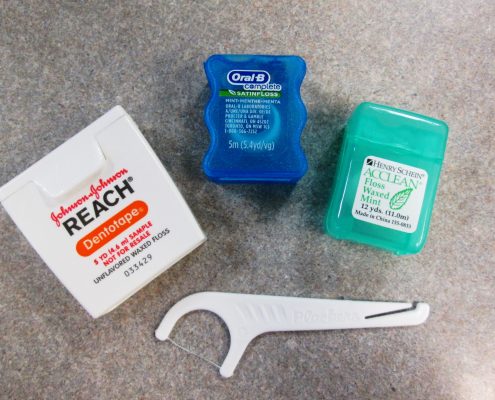Dental Floss Guide
Numerous people have undergone dental implant surgery to restore their lost teeth. Commonly known as teeth implants, dental implants are small folds which are fitted into the jawbone to anchor false teeth.
After a patient undergoes a dental implant treatment, their prosthodontist will inform them about taking good care of their brand new teeth, to ensure that the teeth implants persist for quite a long time. One tip commonly suggested by a prosthodontist Florida would be to floss regularly, around the dental implants and abutments.
What’s dental floss?
The expression dental floss is a misnomer, as floss used for cleaning teeth is usually made from nylon or cotton fibers, instead of any ‘floss’. The fibers used in the production of dental floss are incredibly thin and are strung to each other to form stretchable strings. They are commonly offered in various flavors such as peppermint, strawberry, cinnamon, and even bacon. Also, there are different types of floss for unique requirements.
Some types of dental care which may be suggested for patients that have undergone teeth implant therapy are:

Wax coated floss
This kind of dental floss does not fray like other types of floss. However, it can be much thicker than floss which isn’t coated with wax. However, it typically breaks very quickly, particularly when cleaning teeth whitening implants and abutments. Sometimes, it may also stick to the implants, or create a squeaking sound, when it’s run across the metal.
Teflon-coated bleach
This floss slips more readily between prosthetic teeth anchored by dental implants and natural teeth. The significant downside of this type of floss is its lower cleaning power, in comparison with non-Teflon floss.
Floss with fluoride
Commonly inserted to tooth glue or advocated in diets, fluoride helps protect the teeth enamel, also prevents sugar acids from forming inside the mouth. Dental floss which includes fluoride contributes to stopping the creation of glycolysis in the mouth.
Chlorhexidine soaked floss
Chlorhexidine is proven to avoid the growth of germs and bacteria, and also fights dental caries. It costs a lot more than other types of dental floss.
The types of dental floss mentioned above are usually available in different thicknesses for various needs. If you’re thinking about which kind of floss is right for you, ask your dental prosthodontist, who is going to be able to suggest the most appropriate one, based on your particular case.


